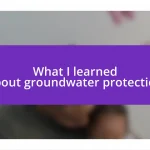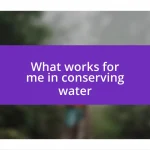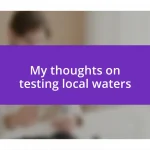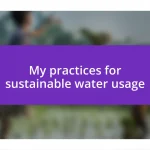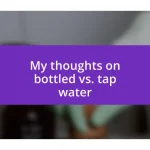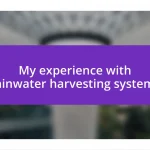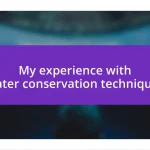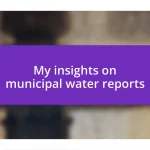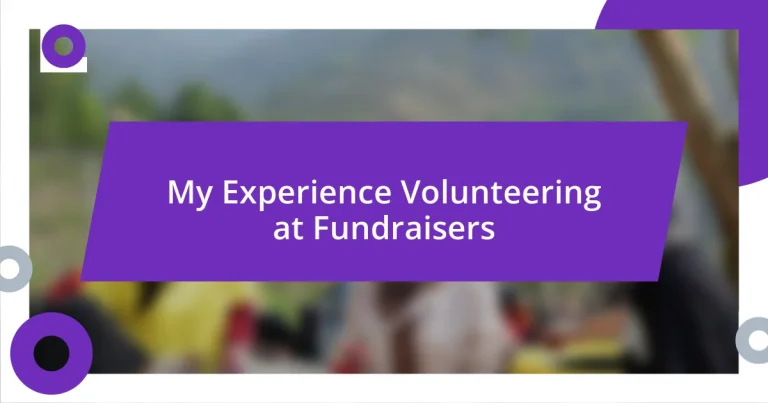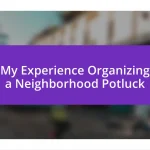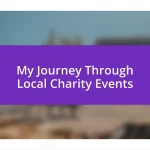Key takeaways:
- Fundraising not only raises money for causes but also fosters community connections and a sense of shared responsibility among participants.
- Choosing a suitable fundraising event involves understanding the audience, aligning with the cause, and creating opportunities for deeper engagement.
- Ongoing engagement with donors through follow-ups, social media, and impact reports strengthens relationships and encourages continued support for the cause.
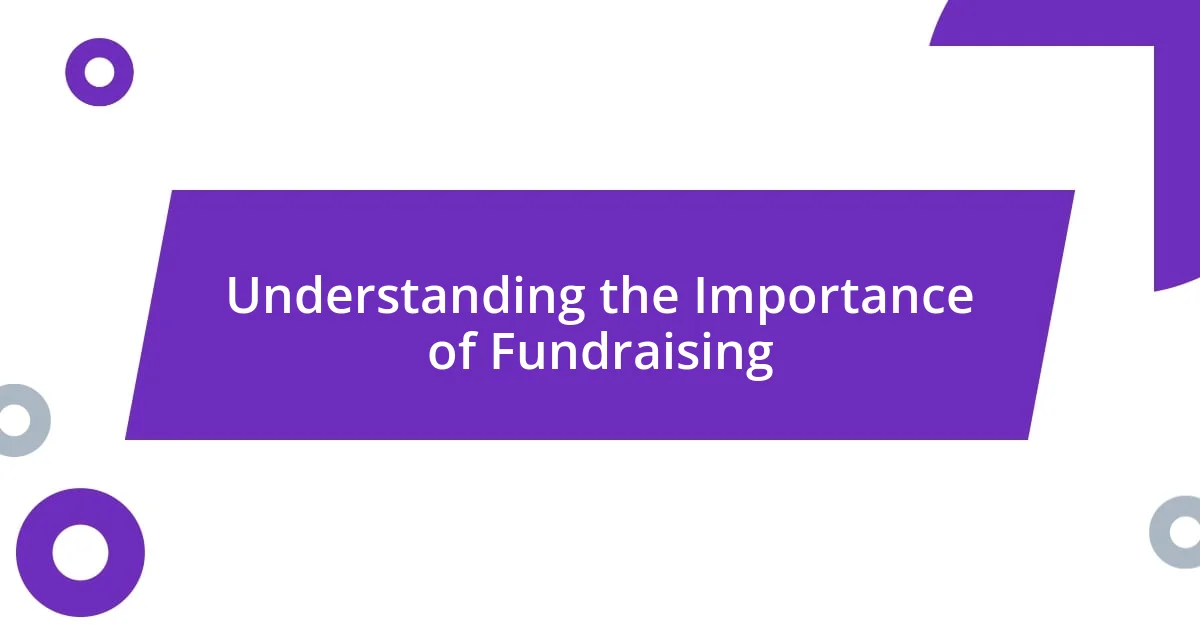
Understanding the Importance of Fundraising
Fundraising plays a critical role in enabling non-profits to fulfill their missions. I remember attending my first fundraiser, where I witnessed firsthand how a community came together to support a local shelter. It struck me that every dollar raised at that event directly impacted someone’s life, making the work feel incredibly real and urgent.
Consider how fundraising creates opportunities that might otherwise not exist. When I volunteered at a charity event, I didn’t just see the funds being collected; I felt the atmosphere of hope and purpose. It made me wonder, how many individuals are waiting for that little push—like a scholarship or a meal—that could change their circumstances?
Moreover, fundraising fosters a sense of community and shared responsibility. During an outdoor event, I found myself chatting with people from all walks of life who were enthusiastic about making a difference. What I realized was that fundraising isn’t just about meeting a financial goal; it’s about forging connections and inspiring collective action toward a better cause.
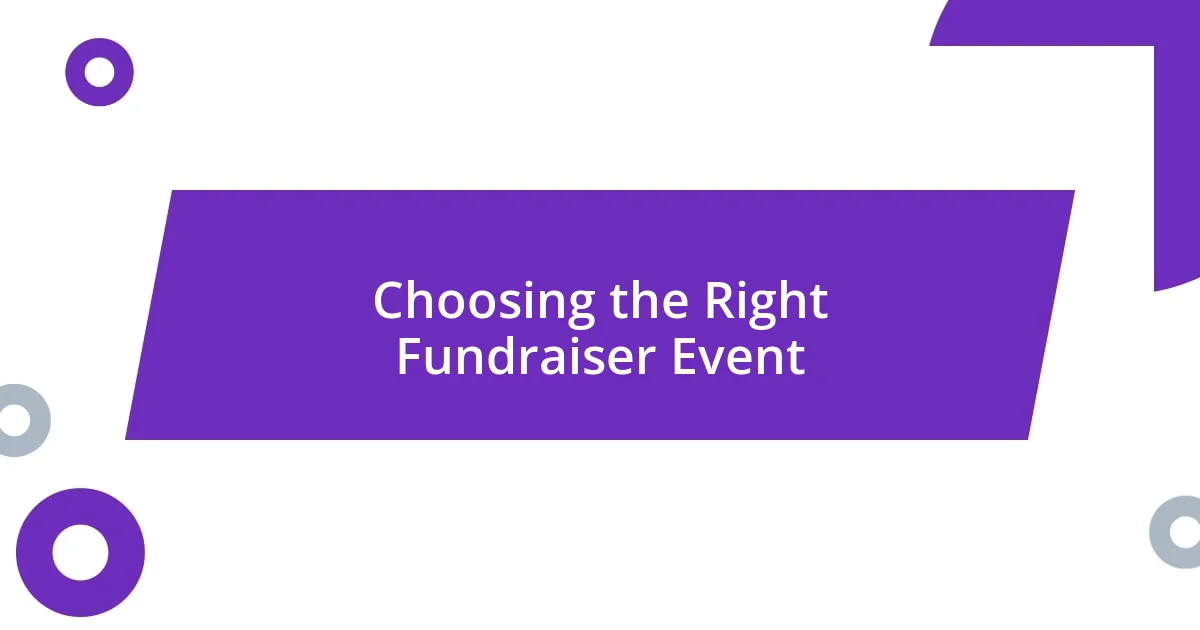
Choosing the Right Fundraiser Event
Choosing the right fundraiser event involves understanding the audience and cause you are supporting. I remember selecting a small charity run for my first volunteering experience. It wasn’t just an event; it was a gathering that united families and individuals who were all looking to contribute to a health cause. It reminded me of how crucial it is for the event theme to resonate with both the participants and the mission at hand.
Here are some key factors to consider when choosing the right fundraiser event:
- Target Audience: Identify who you’re hoping to attract for maximum engagement.
- Cause Alignment: Ensure the event theme aligns with the mission and values of the organization.
- Logistics: Consider the venue, timing, and required resources.
- Engagement Opportunities: Look for ways to involve attendees beyond just donating, such as interactive games or storytelling.
- Community Impact: Reflect on how the event will benefit the local community and whether it fosters a sense of connection.
Ultimately, finding a balance among these elements can lead to a memorable and effective fundraising experience for everyone involved.
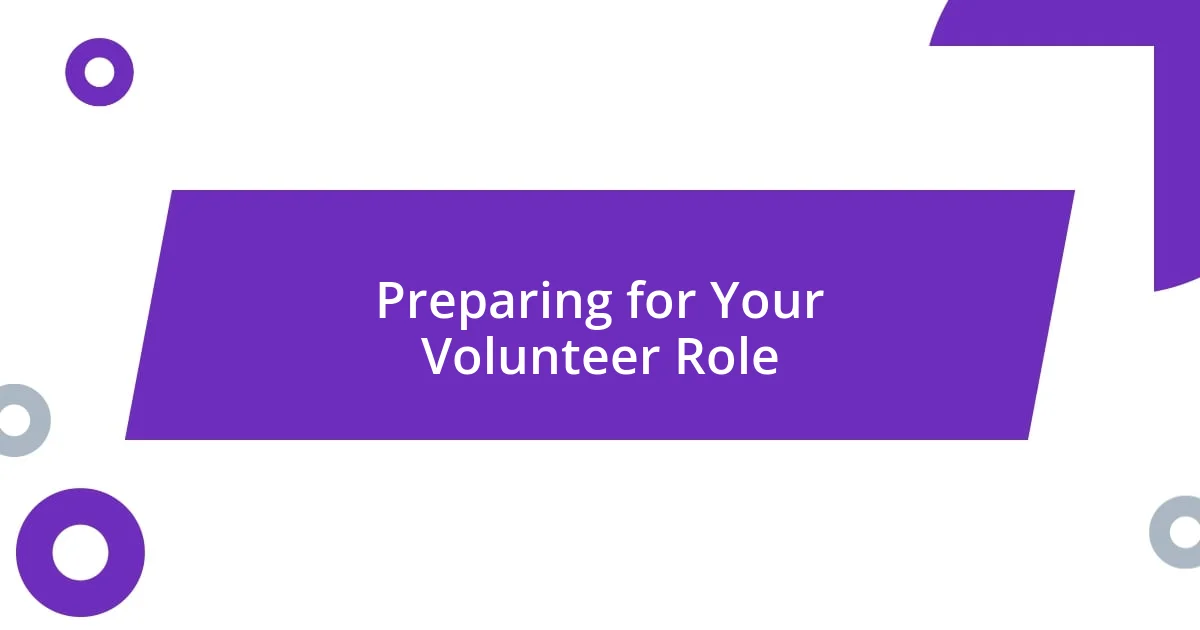
Preparing for Your Volunteer Role
Preparing for your volunteer role often requires careful planning and a clear understanding of your responsibilities. When I volunteered at a community food drive, I made it a point to familiarize myself with the schedule and key tasks. This preparation not only made me feel more confident, but I also noticed it helped others around me understand their roles better, fostering a smoother operation throughout the day.
I also found that reaching out to the event organizers beforehand was instrumental. For example, during a charity auction, I asked a few questions about how to engage with attendees who were more reserved. Their tips allowed me to connect with guests and encourage them to participate more actively. It was incredibly fulfilling to see someone who initially hesitated join in, knowing I contributed to that moment.
In a practical sense, being organized also means gathering the right materials for your role. I remember creating a simple checklist of items I would need at an outdoor fundraiser. This included a volunteer badge, water bottle, and any promotional materials. By being well-prepared, I could focus on the experience itself rather than stressing over details during the event.
| Preparation Steps | Benefits |
|---|---|
| Familiarize with Schedule | Increased confidence and team cohesion |
| Connect with Organizers | Enhanced engagement strategies |
| Create a Checklist | Streamlined focus during the event |
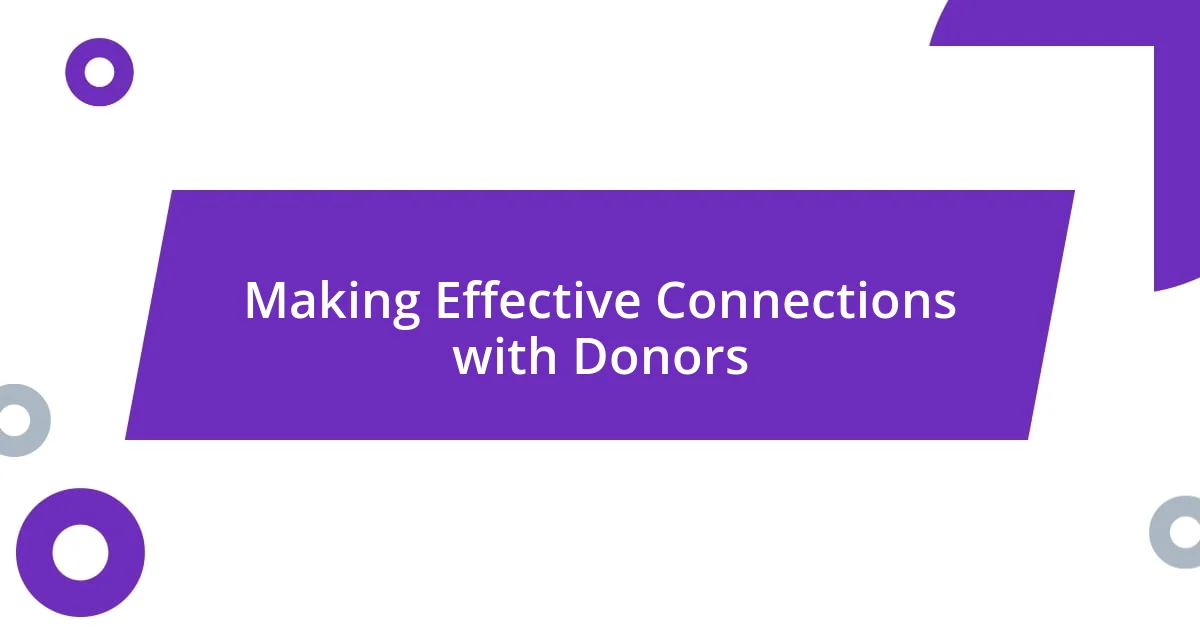
Making Effective Connections with Donors
Building effective connections with donors is a crucial aspect of fundraising that can really make or break the experience. I remember the first time I engaged with a donor at a gala dinner. I approached them with genuine curiosity, asking what brought them to the event. Their eyes lit up as they shared their personal connection to the cause, and in that moment, I realized that listening was just as important as talking. A simple question can open the door to a deeper relationship.
When you’re interacting with donors, it’s essential to connect on an emotional level. For instance, during a cancer awareness event, I shared a heartfelt story about a family member affected by the illness. The donor I spoke with shared their own story, creating an immediate bond between us. It struck me how powerful vulnerability can be; it transforms a fundraising effort from just numbers to a meaningful exchange of experiences and hopes.
I’ve also learned that following up with donors after an event is vital. One time, I sent a thank-you note to a donor I had connected with, referencing our conversation. Their surprised response, expressing how much it meant to them, reinforced my belief that making these connections isn’t just about the donation; it’s about creating a community that fosters ongoing support and engagement. Have you ever considered how that simple act could change someone’s perception of giving?
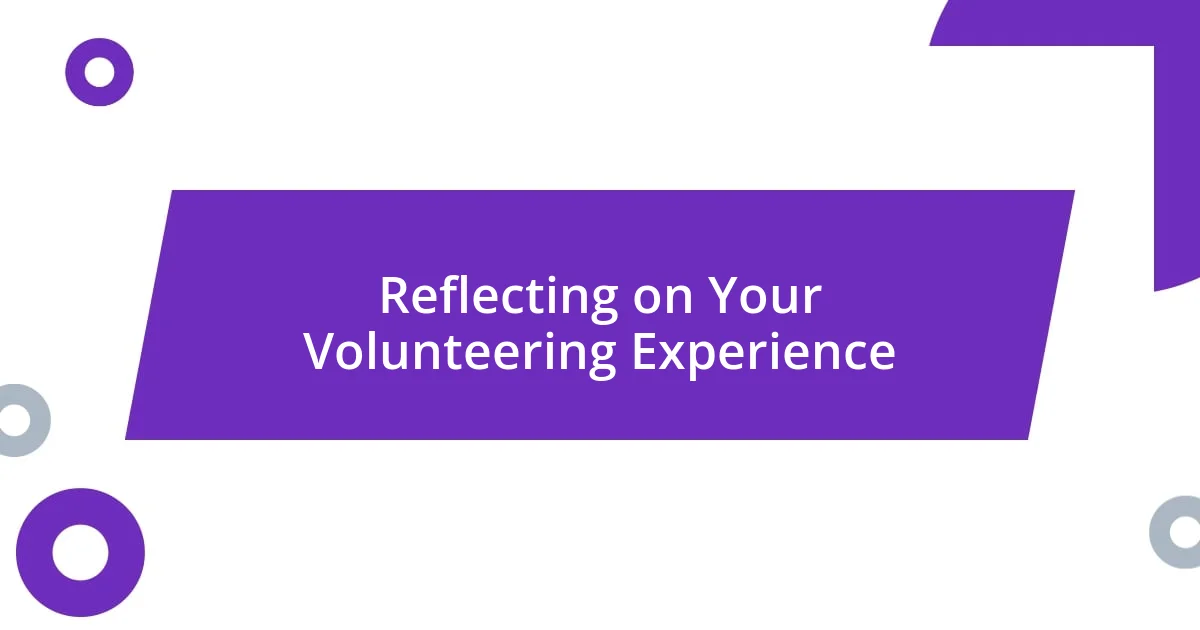
Reflecting on Your Volunteering Experience
Reflecting on my volunteering experience often brings a wave of gratitude and insight. After participating in a fundraising marathon, I found myself pondering how much I learned about resilience. I still vividly remember the moment I crossed the finish line, feeling exhausted yet accomplished. It really hit me – volunteering not only supports a cause but also shapes our character. How many moments like that do we overlook in our busy lives?
During my time at a local shelter’s fundraising dinner, I had a poignant realization about community. As I handed out meals, I noticed how genuinely these small actions connected us all. One evening, I shared a laugh with a guest over a mishap with the dessert table. Those shared moments of joy created a bond I hadn’t expected. Isn’t it fascinating how service creates connections that transcend the event itself?
As I think back on these experiences, I often consider how they have transformed my perspective on giving and community involvement. Volunteering has been a mirror, reflecting not just the needs of others but also my own desires to belong and contribute. It makes me wonder, how do our experiences shape our understanding of the world around us? Each time I volunteer, I walk away with not just memories, but also a deeper appreciation for the connections—both made and reinforced—through these shared endeavors.
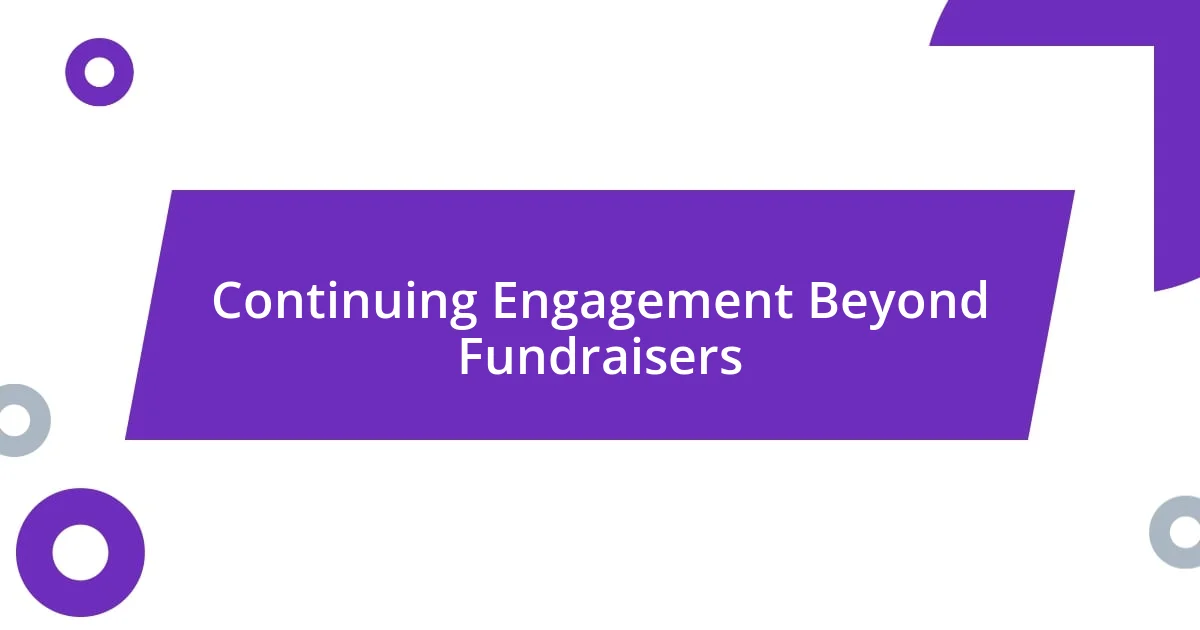
Continuing Engagement Beyond Fundraisers
Continuing engagement beyond fundraisers is essential if we want to cultivate lasting relationships with supporters. For example, after working at a bake sale, I initiated a monthly coffee meetup with some of the donors. This casual setting allowed us to discuss not only future events but also to share personal stories about our lives and how the charity continued to impact us. Isn’t it amazing how a simple cup of coffee can strengthen our bonds?
I’ve also seen the value of social media in maintaining connections. One time, I created a private Facebook group for volunteers and donors alike. It became a vibrant space where we could share updates, celebrate milestones, and discuss our ongoing commitment to the cause. It really opened my eyes to the power of digital communities—how they can extend the conversation way beyond the immediate event. Have you noticed how often we overlook these tools in fostering engagement?
Another approach I’ve found effective is organizing impact reports or newsletters. I remember when I helped draft a monthly update for a nonprofit I volunteered with. The feedback was incredible; people appreciated being informed about the difference their contributions made. I learned that sharing these insights not only keeps everyone engaged but also encourages ongoing support. How rewarding is it to see your involvement actively making a difference?
